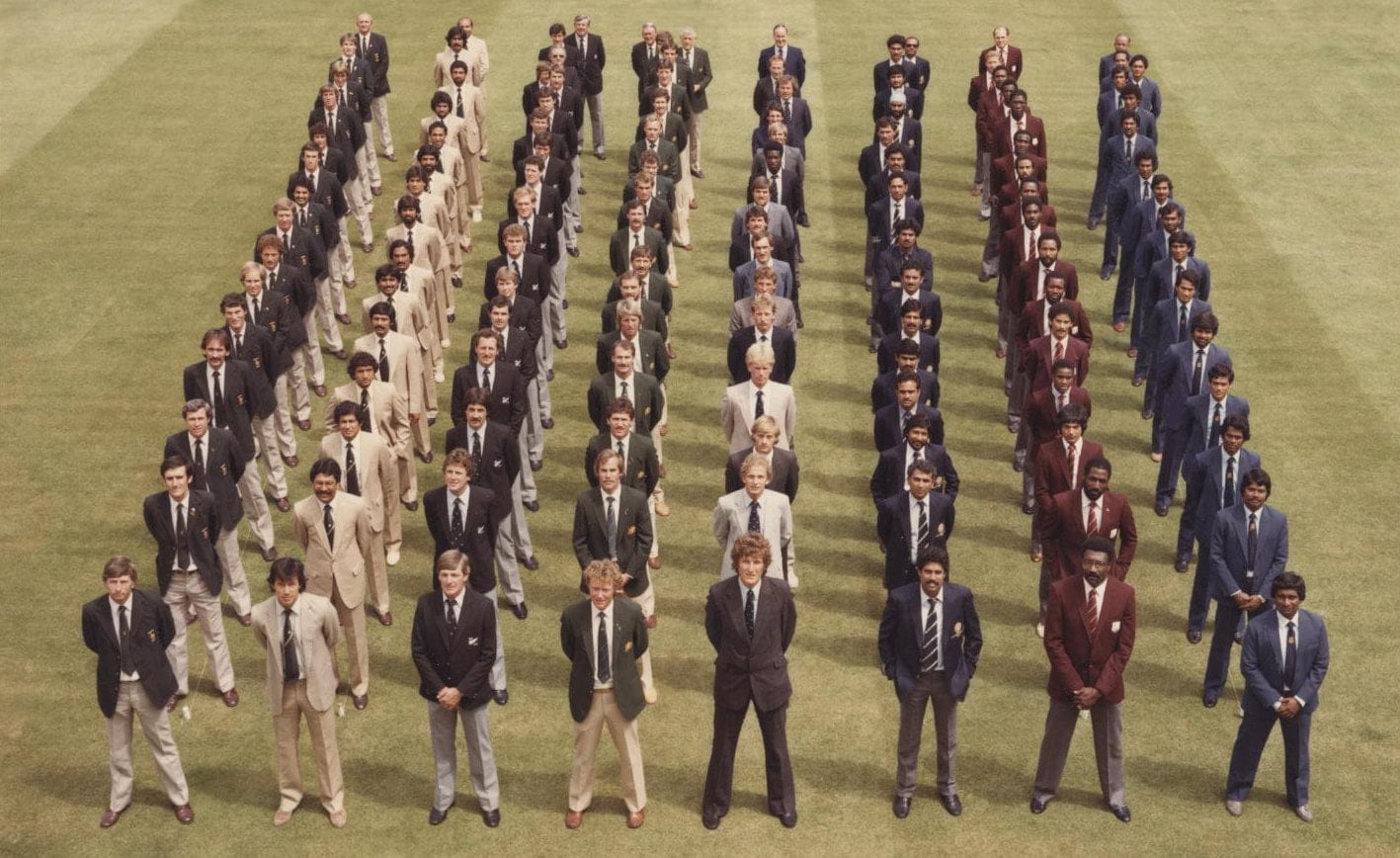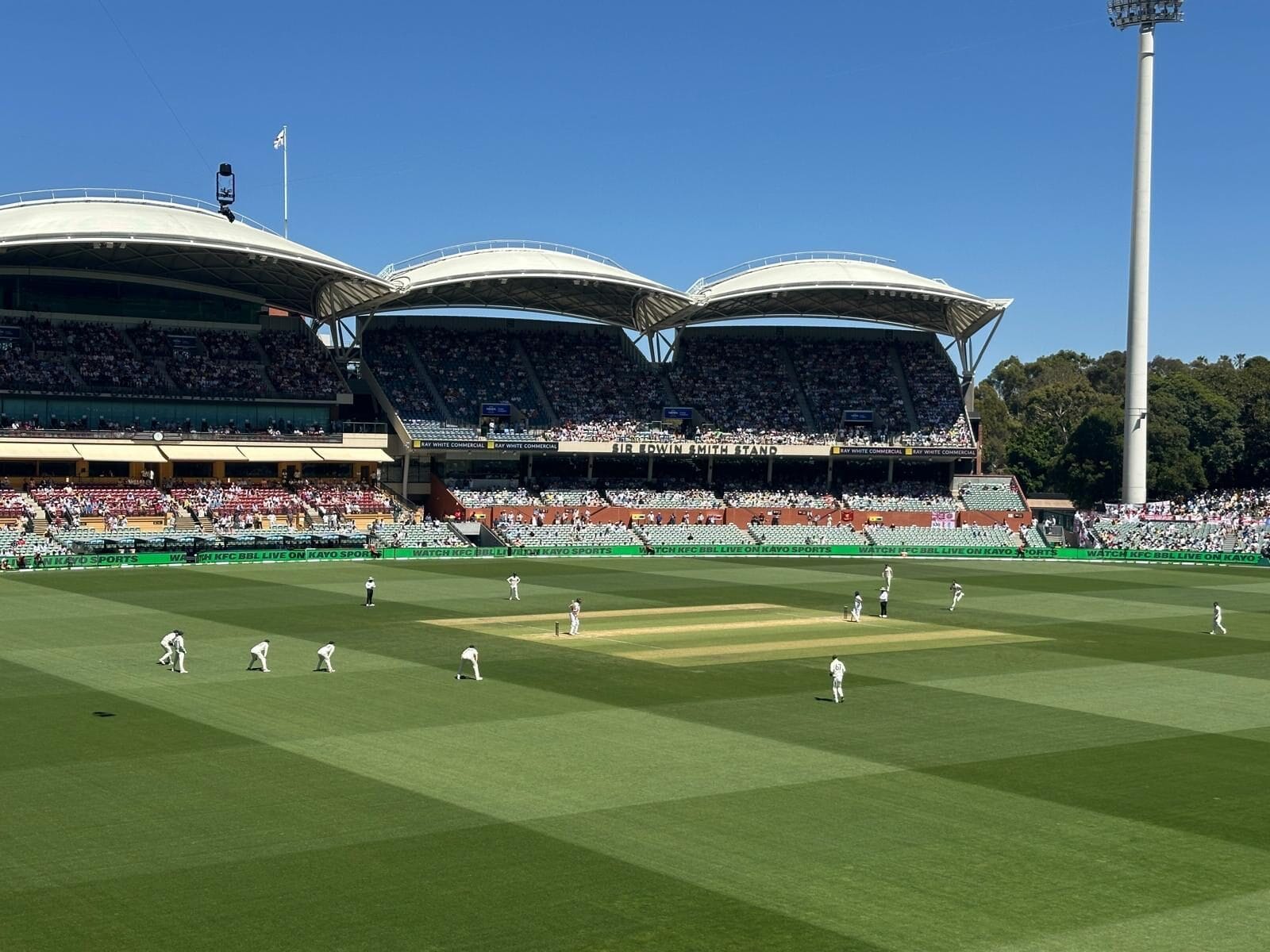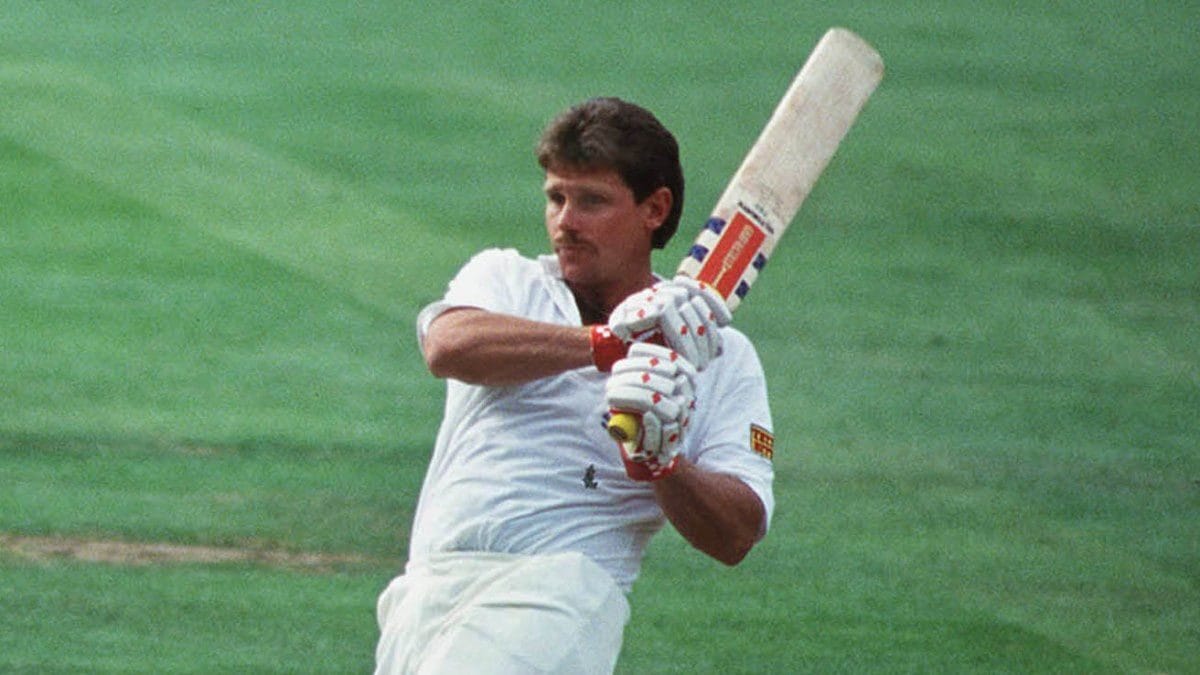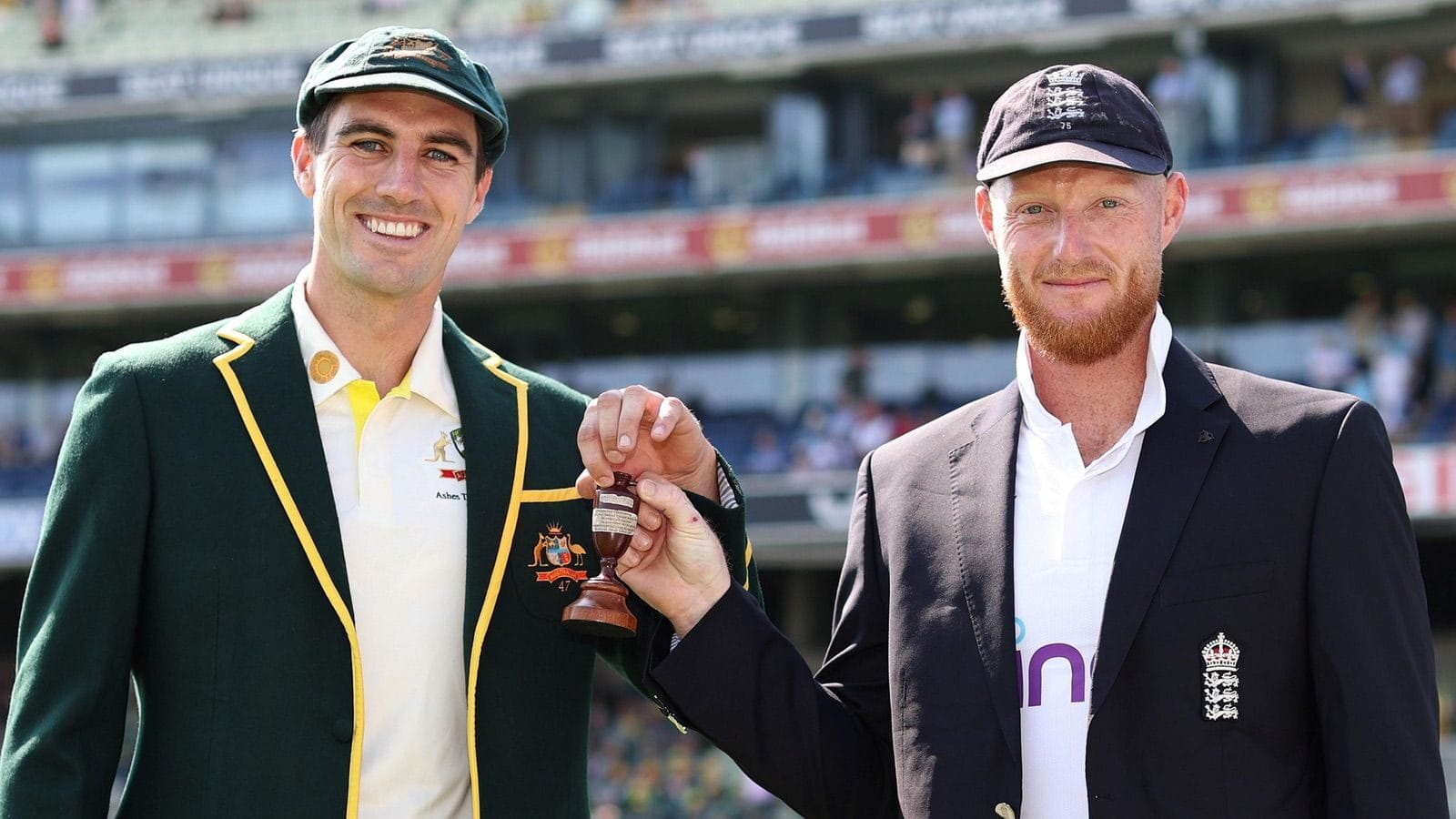1979 is the forgotten World Cup. It’s a bit harsh but that’s just the way it is. There were some very good games, in fact more close games than in 1975. That said, there was no serious challenge to the dominance of the holders, West Indies, who won all the games they played, usually with some ease. (The match against Sri Lanka at The Oval was rained off.) Australia’s World Series players did not appear so there was a slightly second eleven feel about their team, despite the presence of captain Kim Hughes, Allan Border and Rodney Hogg. They won only one game, against Canada. But the tournament was very well supported and generally accounted a success.
As in 1975 eight teams contested the Prudential Cup, divided into two groups of four, the group members playing each other once each. The top two from each group played in the semi-finals.
The six Test sides were joined by two associates, Sri Lanka and Canada, who emerged as the leading sides from a preliminary competition held between 16 associate teams. The World Cup competition itself took place from 9 to 23 June.
With Australia below par and Canada out of their depth qualification for the semi-finals from Group A was reasonably straightforward for England and Pakistan. England won all their group games. They played a fascinating game against Pakistan at Headingley. Batting first, England always struggled and could make no more than 165; Graham Gooch top scored with 33, but the biggest partnership was the ninth wicket stand of 43 between Bob Taylor and Bob Willis. Majid Khan and Sadiq Mohammed started confidently but 27 for no wicket soon became 34 for six with seamer Mike Hendrick taking four wickets in eight balls for three runs. Captain Asif Iqbal made the only half-century of the match, but when Mike Brearley introduced his secret weapon, local hero Geoff Boycott, to bowl his medium pace, it really was all over. He took the last wicket, Hendrick leaping to catch Sikander Bakht at mid-off, finishing with two for fourteen.
In Group B Sri Lanka won their first World Cup match, beating India by 47 runs at Old Trafford. Syed Wettimuny, Roy Dias and Duleep Mendis all made fifties. India did not win a game.
The semi-finals
At Old Trafford England beat New Zealand by nine runs. This was another of those games where the seam bowlers always seemed to be in charge. Brearley, with 53, laid a solid foundation at the top of the order, while Gooch with 71, and Derek Randall, coming in at number 7 and making 42 not out, gave the innings some momentum. New Zealand’s attack, led by Richard Hadlee, gave very little away. The picture was much the same when New Zealand batted. John Wright and Bruce Edgar gave them a very solid start. Wright made 69 before being brilliantly run out by Randall. Mark Burgess was also run out, and Boycott again bowled economically, taking one for 24 in nine overs. There was a burst at the end from Warren Lees and Lance Cairns but Hendrick dismissed them both. Fourteen runs from the last over, delivered by Ian Botham, was too big an ask.
By contrast the batsmen were in charge at The Oval, where West Indies best Pakistan by 43 runs. West Indies, sent in, made the then considerable score of 293 for six. All their main batsmen made runs, Gordon Greenidge and Desmond Haynes making 73 and 65 respectively. Sarfraz Nawaz took one for 71 in twelve overs. (Back then that was expensive.) Few people gave Pakistan much chance but that most elegant pair of batsmen, Majid Khan and Zaheer Abbas, had a wonderful partnership of 166 in 36 overs. Colin Croft broke the stand and took two more wickets; Viv Richards also took three wickets and Andy Roberts polished off the tail.
The final
As in 1975 a West Indian batsman took centre stage at Lord’s. This time it was the great Antiguan, Richards, who made a superb 138 not out.
Brearley put the holders in even though he was without his spearhead, Willis, who was injured in the semi-final. But Botham, Hendrick and Chris Old made an incisive start and when Clive Lloyd was out for 15 the score was 99 for four.
But that brought in Collis King to join Richards, and the match was transformed. Although Richards won the match award it was really Kung who made the difference. The pair put on 139, of which King made 86 in 77 minutes of powerful hitting: he struck three sixes and ten fours.
Part of Brearley’s problem was that he had only four specialist bowlers – the three seamers and slow left armer Phil Edmonds. The “fifth bowler” was made up of Boycott, Gooch and Wayne Larkins. This was expensive; the hitherto thrifty Boycott went for 38 in six overs; Larkins went for 21 in two.
Richards stayed to the end and West Indies finished on 286 for nine.
England’s openers were Brearley and Boycott. Of course we’re talking about two different worlds, but this was not Jason Roy and Jonny Bairstow. In a sense they did quite well. They put on 129 for the first wicket, Brearley making 64 and Boycott 57. But Boycott took 17 overs to get into double figures. The main impact of the opening partnership was to make the task of the later batsmen almost impossible. When Brearley was out the target was 158 in 22 overs. Panic set in. 183 for 2 became 194 all out; Joel Garner took five for 38.
West Indies won by 92 runs.




